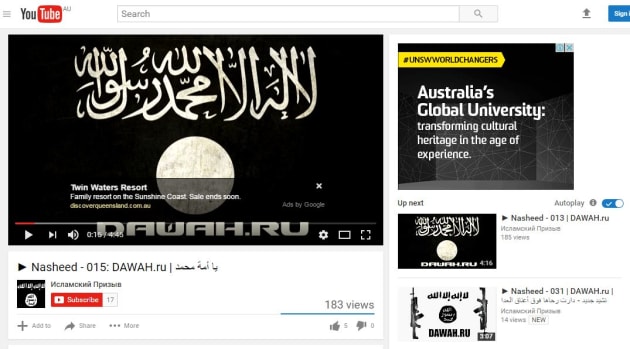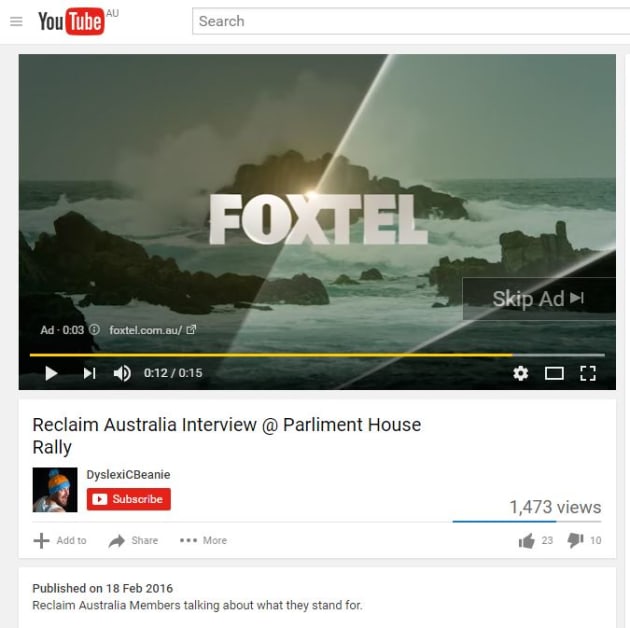
Several brands, including Jaguar Land Rover, Thomson Reuters, Sandals and Marie Curie, have suspended all or parts of their digital advertising after discovering their online ads were unwittingly placed on YouTube channels and other websites controlled by ISIS sympathisers, white supremacist and pornographers.
Programmatic trading and poorly maintained blacklists of websites are being blamed for the scandal, which a report in The Times found has affected hundreds of brands, including Mercedes-Benz, Honda, Waitrose John Lewis, Disney, Lloyds Bank, HSBC and Nissan.
The ease at which the ads have found their way on unsavoury YouTube pages and websites raises questions about the brand safety of programmatic trading and the ability of media agency partners to police it. Many brands have already consulted their agency partners to investigate the source of the problem.
The problem isn't restricted to the UK. A five-minute YouTube search revealed a Foxtel pre-roll preceded an interview with Reclaim Australia members loaded with racist rhetoric. The video was placed by an independent filmmaker not linked to the group. Another search found a University of NSW ad alongside a video by a Russian jihadi with a Twin Waters Resort banner over the top.


Sarah James, chief digital officer at Carat, tells AdNews there are several steps that brands and media agencies can take to improve brand safety on YouTube.
“The below incident refers to activity on YouTube. To mitigate this risk for our clients, our partnership with Google focuses on ‘Google Preferred’ which is the top 5% of YouTube inventory based on content quality and brand safety,” she says.
“Further to that, we also have accredited data providers to ensure we are running across YouTube content that’s applicable to and in alignment with our clients’ objectives. Finally, our partnership with IAS ensures that we have the additional safety net of third-party verification.”
Illegal placements
What is more difficult to prevent is when ad spots are placed illegally. In some cases, as was discovered by car maker Honda, a completely independent company had placed a spot using the brand's name.
"To minimise risk in the future Honda will reach out to the business partners it works with to ensure that steps are put in place regarding future programmatic advertising,” a Honda spokesperson said.
The scandal has place brands in the awkward and damaging position of inadvertently funding groups they would never associate with.
Ads that are placed against YouTube videos can earn content publishers an estimated $7.60 per 1,000 views, which can potentially fund terrorist organisations and other extremists groups whose videos can sometimes rack up millions of views.
A Google spokesperson told AdNews: “When it comes to content on YouTube, we remove flagged videos that break our rules and have a zero tolerance policy for content that incites violence or hatred. Some content on YouTube may be controversial and offensive, which is why we only allow advertising against videos which fall within our advertising guidelines.
“Our partners can also choose not to appear against content they consider inappropriate, and we have a responsibility to work with the industry to help them make informed choices.”
Have something to say on this? Share your views in the comments section below. Or if you have a news story or tip-off, drop us a line at adnews@yaffa.com.au
Sign up to the AdNews newsletter, like us on Facebook or follow us on Twitter for breaking stories and campaigns throughout the day.


